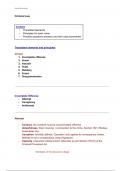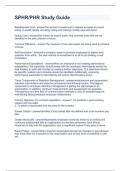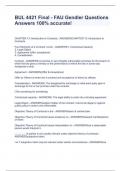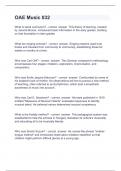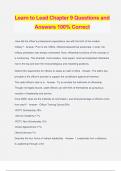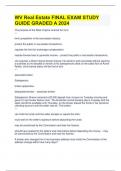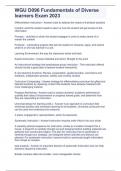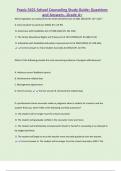Resumen
Summary CRIMINAL LAW: elements, principles, practice questions
- Grado
- Institución
-I received 80% for crim studying only from these notes (pm me if you want a screenshot) - all principles that state the relevant element too - translated elements for every crime - well structured practice answers that are colour-coded - mini summaries of cases
[Mostrar más]
